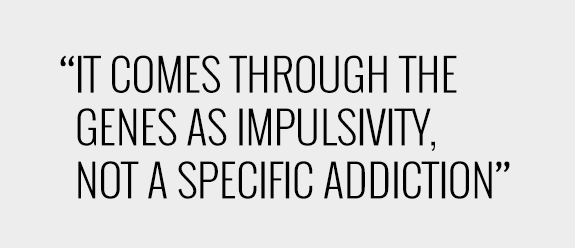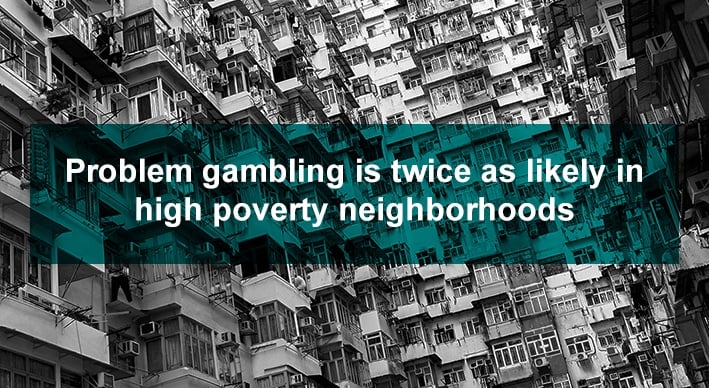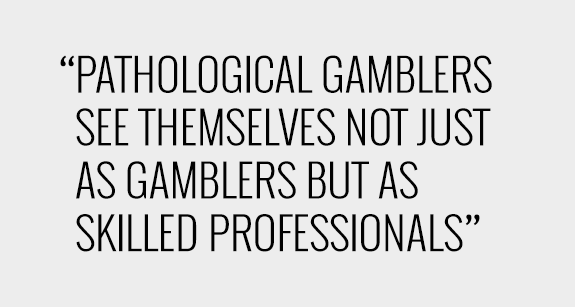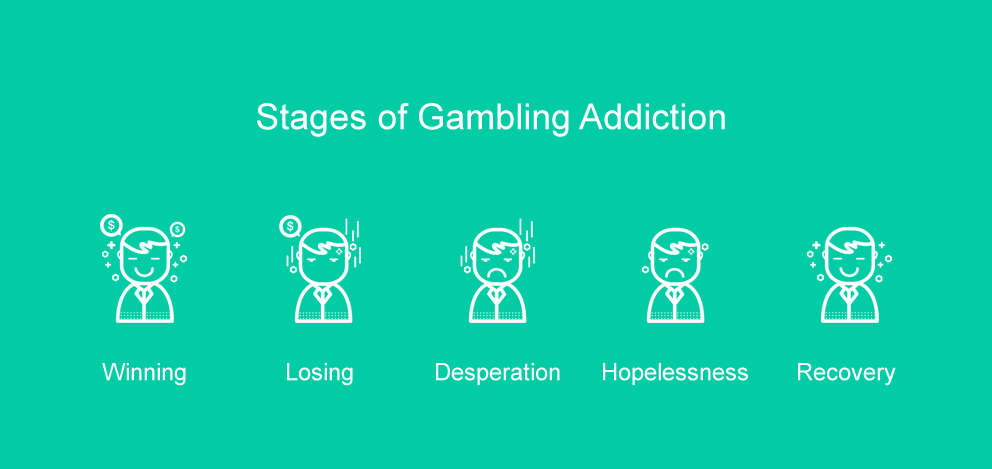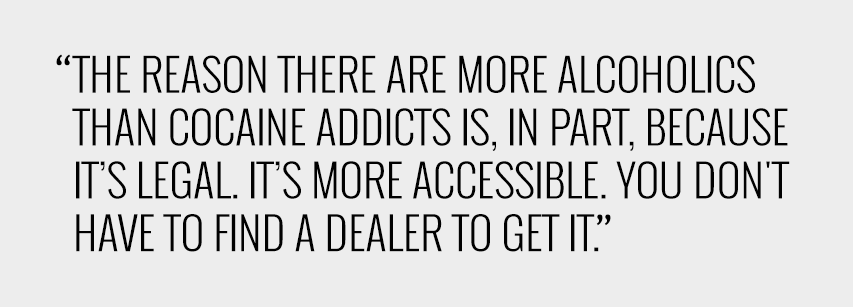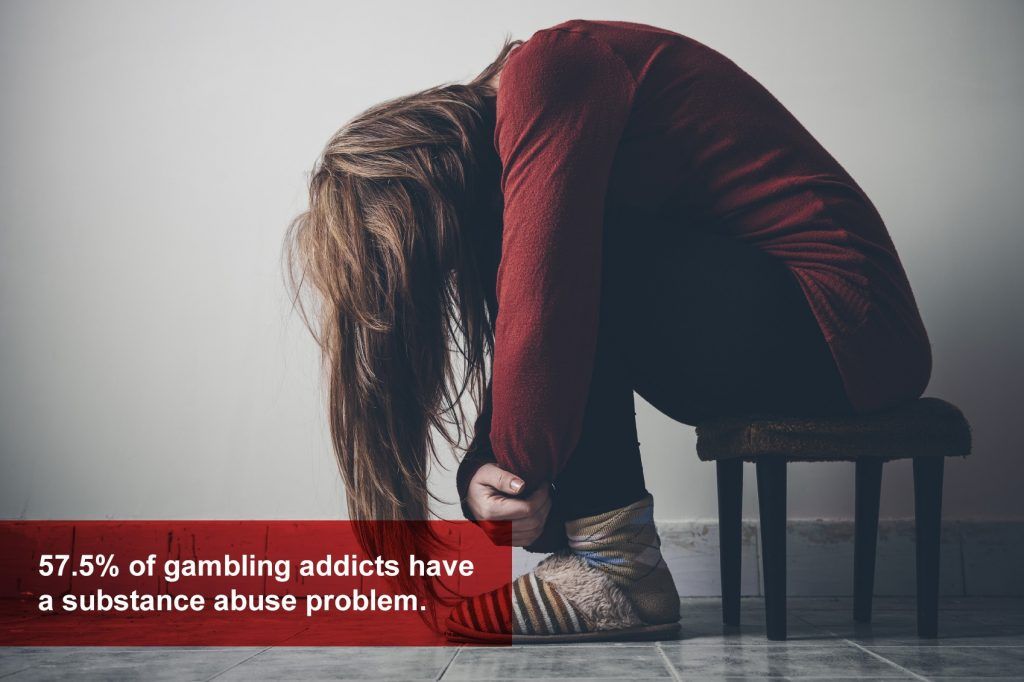Inside Gambling Addiction: Insights from Dr. David Sack
 Dr. David Sack, Chief Medical Officer at Elements Behavioral Health, leads several addiction rehabilitation centers focused on gambling and substance abuse. We spoke exclusively with Dr. Sack about the mechanisms of gambling addiction, why some people are more prone to compulsive betting, and the influence of genetics and mental health on gambling behaviors.
Dr. David Sack, Chief Medical Officer at Elements Behavioral Health, leads several addiction rehabilitation centers focused on gambling and substance abuse. We spoke exclusively with Dr. Sack about the mechanisms of gambling addiction, why some people are more prone to compulsive betting, and the influence of genetics and mental health on gambling behaviors.
Understanding Gambling Addiction: Root Causes and Brain Chemistry
The pull of gambling goes beyond the simple desire to win money. Dr. Sack explains that while genetics are a factor, a growing body of research links gambling disorder to the brain's dopamine reward pathways. For many, the real allure is not the act of winning itself, but the anticipation of a possible win. This sense of anticipation triggers the release of dopamine, motivating repeated behavior despite negative consequences.
Impulsivity and Inherited Tendencies: Who Is at Risk?
Dr. Sack emphasizes that while gambling addiction is not tied to a specific personality trait, an inherited predisposition toward impulsivity plays a significant role. Approximately 30% of impulsive traits are believed to be genetic. Family histories often reveal patterns where impulsivity is expressed through various forms of addiction: one generation may gamble, another may struggle with alcoholism, and still another might face substance abuse issues.
Key Risk Factors: Who Is Most Vulnerable to Gambling Addiction?
Although gambling problems can impact anyone, research shows a higher incidence among certain groups. Studies suggest that people living in areas of concentrated poverty are twice as likely to develop gambling problems compared to those in more affluent neighborhoods.
Groups at greater risk of developing gambling addictions include:
- Men (though rates are rising among women over 65 and younger than 35)
- Individuals with a family history of pathological gambling or other addictions
- Young adults who experience a significant win early in their gambling life
- People diagnosed with mental health conditions like depression, bipolar disorder, anxiety, ADHD, or substance abuse issues
- Patients with Parkinson’s disease taking dopamine agonists
Problem gamblers may also develop other compulsive behaviors, including excessive shopping and hypersexual tendencies.
The Cycle of Gambling: Why Do Addicts Keep Betting?
The persistence of gambling behavior, even in the face of destruction, often comes from a deep-seated belief that a win is just around the corner. For many, the competitive aspect-whether outsmarting fellow poker players or picking a winning horse-fuels the mindset that gambling is about skill, not luck.
Pathological gamblers frequently rationalize their actions by convincing themselves they’re professionals or have superior intuition, leading them to view gambling as more than mere chance.
The Five Phases of Gambling Addiction
According to Dr. Sack, compulsive gamblers often move through a predictable series of stages:
- 1. Winning: Early frequent wins create an illusion of mastery and control, reinforcing the gambler's confidence.
- 2. Losing: Gambling escalates in frequency and amount, and losses begin to accumulate. Rationalizations, borrowing, and deceptive behavior become common as the gambler chases losses.
- 3. Desperation: Gambling becomes an all-consuming focus, driving the individual to increased risk-taking, lying, and, in some cases, criminal activity to fund their habit. Relationships and finances deteriorate rapidly.
- 4. Hopelessness: Total collapse may occur-financial ruin, broken relationships, and, in severe cases, thoughts of suicide or illegal acts.
- 5. Recovery: Admittance of the problem and pursuit of treatment or support through counseling, 12-step programs, or rehabilitation.
Real Stories: The Long Road to Recovery
Dr. Sack recounts his first experience treating a compulsive gambler-a once-successful business owner who lost everything, including his marriage, to poker addiction. After seeking therapy and joining Gamblers Anonymous, he experienced periods of improvement, but relapse led to lifelong consequences, including depression and working in environments that sustained the addiction.
Approaches to Treatment: How Gambling Disorders Are Addressed
Treatment for gambling addiction varies based on the severity of the problem. Dr. Sack advocates a combination of therapy, specifically cognitive behavioral therapy (CBT), and self-help support groups. CBT can help individuals develop healthier ways of thinking and behaving. In more entrenched cases, a multidisciplinary approach including medication may be used to regulate brain chemistry and curb compulsive impulses.
Medications studied for gambling addiction include opioid antagonists, selective serotonin reuptake inhibitors (SSRIs), mood stabilizers, and, in some cases, lithium. For individuals with comorbid conditions like bipolar disorder, certain drugs may reduce the positive sensations associated with gambling wins.
The Impact of Accessibility: Gambling in the Digital Age
Easy access to gambling-whether through physical venues or online platforms-exacerbates the risk of addiction. Dr. Sack compares the widespread availability of legal gambling to the prevalence of alcoholism: more opportunities to access a substance or activity naturally results in increased rates of addiction.
Are Gambling Addicts at Higher Risk for Other Addictions?
A striking percentage-more than half-of pathological gamblers also struggle with substance abuse. Dr. Sack notes frequent cocaine use among gamblers, particularly because stimulants help individuals stay awake and engaged while gambling. Typically, these individuals are not interested in substances outside the gambling context.
Prevention and Support: Reducing the Stigma of Gambling Disorders
According to Dr. Sack, around 80% of those struggling with gambling addiction never seek help. Stigma and lack of awareness remain significant barriers. He calls for increased education about the warning signs of addiction, as well as a focus on teaching healthy emotional coping mechanisms. Early intervention and supportive community programs can play a vital role in preventing addiction before individuals lose control over their lives.
For more information on Dr. David Sack’s work in addiction and gambling disorder treatment, visit Elements Behavioral Health.


